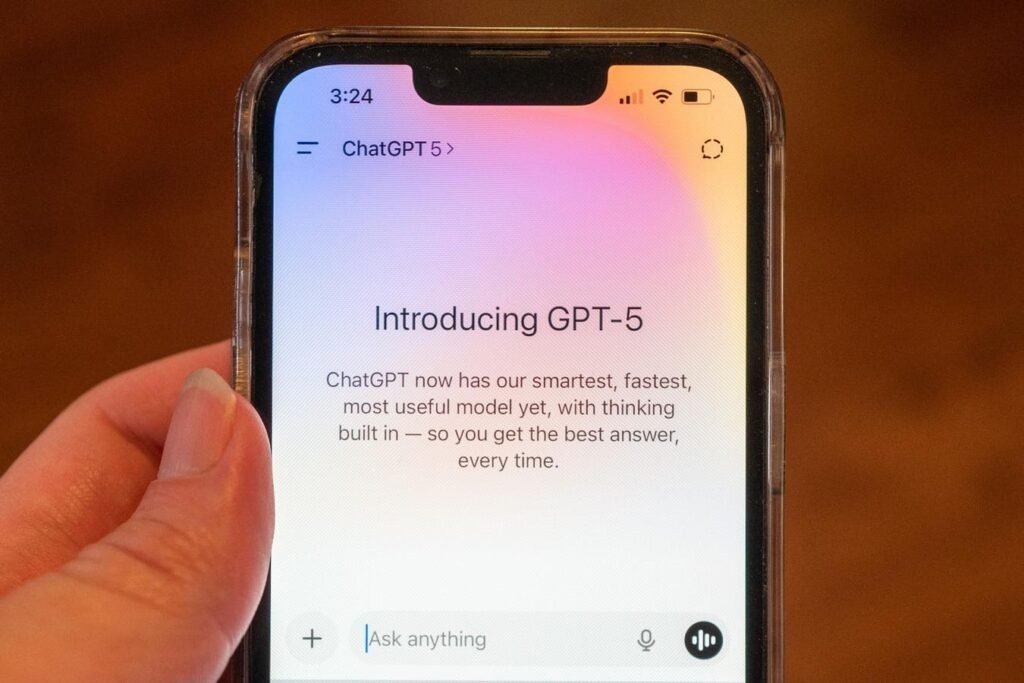Being a patient can be a challenging experience. Back in 2006, I received a diagnosis that completely changed my perspective on life. However, a second opinion provided me with a different diagnosis and treatment plan, which left me feeling betrayed by the initial specialist who delivered life-altering news without substantial evidence. Eventually, I found clarity in my diagnosis, understood the imaging, and had a plan moving forward.
Looking back, I wish I had access to a sophisticated search engine, online community, or ChatGPT that could have provided unbiased guidance on my symptoms.
Close-up of a person’s hand using the OpenAI GPT-5 artificial intelligence model on an iPhone, with text introducing the model, Lafayette, California, August 7, 2025. (Photo by Smith Collection/Gado/Getty Images)
Gado via Getty Images
The term “doctor” originally meant “teacher” as a mark of respect for the educational and guiding role physicians play. However, the trust in doctors has significantly declined over the years, with recent polls showing a sharp decrease in confidence. The rise of unsupervised technology providing medical advice has further complicated the patient-doctor relationship.
Boston, MA – February 6: A protester holds a sign up reading honor your Hippocratic oath so that healthcare workers inside Brigham and Womens Hospital can see it outside of Brigham and Womens Hospital in Boston on Feb. 6, 2022. People protest the hospitals reported refusal to perform a heart transplant on a patient named DJ Ferguson who wont get vaccinated against COVID-19. (Photo by Jessica Rinaldi/The Boston Globe via Getty Images)
Boston Globe via Getty Images
The Hippocratic Oath, once a simple contract between patient, doctor, and disease, has become more complex due to factors like health insurance, malpractice liability, and industry influence. The digital era has introduced new technologies that offer instant access and empower patients, but they also pose risks when patients rely on them for medical decisions without proper oversight.
The abundance of online content related to health and medicine, created by both reliable and unreliable sources, prioritizes speed over accuracy. Patients may turn to online platforms for information, potentially leading to misguided decisions and unrealistic expectations.
Doctors now face challenges from online influence.
Patients are increasingly turning to social media and online sources for medical advice, sometimes disregarding professional recommendations. This trend can lead to misunderstandings, conflicts, and potentially harmful decisions.
Doctors now have to manage unrealistic online expectations.
Patients are influenced by online narratives and may request inappropriate or unnecessary procedures based on misinformation. This places a burden on doctors to educate and guide patients towards safe and effective treatment options.
In a healthcare system where digital information often supersedes traditional expertise, doctors must navigate the challenges of online influence while upholding their commitment to patient care and safety. The importance of human connection and trust in the doctor-patient relationship cannot be replaced by digital solutions.


